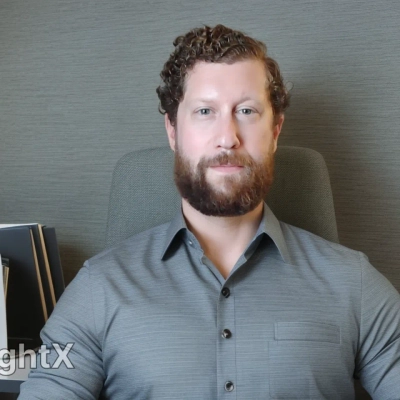5 Challenging Cases that Changed My Clinical Psychology Practice
Clinical psychology is a field filled with unexpected challenges and profound revelations. This article delves into five compelling cases that have reshaped professional practices, offering unique insights from seasoned experts. From unmasking covert narcissism to the transformative power of validation, these experiences highlight the complexities and rewards of therapeutic work.
- Unmasking Covert Narcissism in Therapy
- Learning Disability Diagnosis Transforms Self-Perception
- Client Termination Reveals Importance of Therapeutic Holding
- Leech Monologues Build Trust in Therapy
- Validation Before Techniques Improves Anxiety Treatment
Unmasking Covert Narcissism in Therapy
Full-blown narcissism--narcissistic personality disorder (NPD)--is known to be an unwieldy and intractable mental health disorder. True narcissists can be hard to detect, especially if they are covert narcissists. Even a well-seasoned psychologist might have difficulty (at first) detecting someone with NPD, especially if they're highly manipulative and charismatic. This background sets the stage for a case that proved to be one of my most challenging.
What began as a wife's request for relationship therapy with her husband of ten years turned into a fascinating, if extremely trying, journey into the realm of covert narcissism. It took me at least three sessions to unravel what was taking place in the marriage, yet slowly the husband's mask fell away. And it is at this point--when the narcissist is exposed--that they become highly combative, defensive, and even abusive. As a clinician, I'd never experienced targeted rage from a patient, so I wasn't prepared for what unfolded. And this became one of the key lessons I've learned as a psychotherapist: a person with narcissistic personality disorder will--if exposed--try to destroy the individual responsible for their unmasking. And clinicians are not immune from being targeted. Although I was tempted more than a few times to terminate sessions with this individual, I knew that the wife was benefiting. This allowed me to stay the course and help effect a reasonable amount of positive change.
How did this change how I practice as a clinical psychologist? You might imagine that I became loath (as many clinicians are) to work with patients who have NPD, but this challenging experience helped me learn so much about covert narcissism in action. And I developed stronger skills at detecting and working with this serious personality disorder. And with narcissism seeming to surge in today's world, it feels empowering to know that I'm well-equipped to address (and even help shift) a disorder that negatively impacts many romantic partnerships, family relationships, work environments, and friendships.

Learning Disability Diagnosis Transforms Self-Perception
A woman in her forties came to my office feeling like a failure. For her entire life, she had kept a secret that she was "not smart" because school and work had always been so difficult. We conducted some tests, which revealed she had a severe learning disability that had never been discovered. She sat in my office and cried, but she cried from relief, not sadness. For the first time in her life, she realized that she was not a failure and that she was incredibly strong and resilient. That day, I learned what our work as psychologists is really about. We do more than just find a diagnosis. We help lift a heavy weight and help people learn to be kind to themselves.

Client Termination Reveals Importance of Therapeutic Holding
We have divisive experiences in our learning - a fork in the road that sets a trajectory for the future. I recall at my first doctoral practicum, a client fired me (a common term we use, but "quit therapy" is maybe more accurate) and I came face to face with this fork in the road: to bury my head in the sand and leave it that "she wasn't ready for therapy, and personality got in the way," or take an opportunity to learn.
The client had panic disorder and didn't engage in coping skills, and when we seemingly got to anything important in therapy, she shut down and said "I don't know." After only three sessions, she said therapy wasn't working. This is clearly not enough time, and I responded that "we could move at a paced manner, or explore what is behind 'I don't know' if you wanted to move faster." That was the end of our work together.
I talked to my mentor and did a lot of reading to understand that she couldn't handle feeling responsible for her own recovery. When I gave suggestions for coping skills, I implied I would take that responsibility. She had unconscious barriers to that goal of recovery though, so we were both stuck. This is meaningful and common, a countertransference, in which she showed me how stuck she felt, when she couldn't verbalize it, by unconsciously leaving me - just for moments during sessions - equally as stuck. I could never empathize with this, reflect it back to her in therapy, or explore the fear of recovery and responsibility on her own. But when I stated that she had control over recovery by deciding whether or not to explore what psychological experience hid behind her "I don't knows," I bulldozed her defenses and put the responsibility back on her.
Certainly I cannot take responsibility for her recovery, I can't do it for her, but I can be there with her and do recovery with her. We call this holding. The key ingredient of therapy isn't simply getting from point A ("I don't know") to point B (whatever pain was behind it), but sitting with that moment of stickiness together. If I'm okay here, maybe you're okay here.

Leech Monologues Build Trust in Therapy
As a psychotherapist with over two decades of clinical experience, I've worked with individuals from all walks of life. But there's one case that continues to echo in my clinical awareness, reshaping the way I think about progress, trust, and the subtle depths of the therapeutic process.
He was a PhD candidate — highly intelligent, hyper-focused, and deeply immersed in his research on leeches. Yes, actual leeches. From our very first session, and continuing for nearly three years, the conversation was dominated almost exclusively by detailed expositions on the biological intricacies of these small aquatic parasites. Every week, he would arrive, sit down, and begin — "Did you know that leeches can survive long periods without feeding...?" — and we were off.
I will admit that my countertransference during this period was intense. I often left sessions questioning whether anything therapeutic was happening at all. I felt ineffectual, bored, and occasionally even irritated. It challenged my patience, my training, and, frankly, my hope.
Then, one day — without warning, without fanfare — everything shifted. He sat down, looked at me differently, and began to talk about himself. Not the leeches. He spoke of loneliness, of feeling unlovable, of his fear that no one could ever truly see or accept him. His voice trembled. He cried. I did too.
1. He Needed to Talk About Leeches for Three Years to Build Trust
What seemed like avoidance or obsession was actually his way of building a bridge to me — a slow, cautious laying down of planks made from what he could safely share. His monologues weren't a refusal to engage; they were a test, a ritual, a protective shield. He needed me to meet him there.
2. The "Work" Was What He Was Internalizing, Not What He Was Saying
Though the content of our sessions seemed repetitive, the relational dynamic was anything but static. He was internalizing my presence, my patience, my nonjudgment.
3. It's Paramount to Sit with Challenging Feelings — Sometimes for Years
Therapy is not just about helping the client regulate their emotions — it's also about our own capacity as therapists to tolerate the full range of affect in the room.
4. Change Can Happen Beneath the Surface, in Places We Cannot Yet See
What looks like "nothing" on the outside may be profound reorganization on the inside. This client was doing deep internal work — slowly dismantling defenses, metabolizing shame, and testing whether safety was real.

Validation Before Techniques Improves Anxiety Treatment
Early in my career, I worked with a young adult who presented with severe anxiety and recurrent panic attacks. My instinct at the time was to move quickly into breathing exercises, grounding strategies, and structured cognitive behavioral therapy. The client was engaged but reported little improvement after a few weeks. I felt frustrated and questioned my competence. One day, the client said something like, "I feel like you don't see how terrified I am, like I might die." This made me realize that I had failed to fully validate the depth of their experience.
This fundamentally shifted my practice, and I came to appreciate that evidence-based techniques are most effective when rooted in a strong therapeutic relationship. The client didn't need a checklist of coping skills; they needed to feel understood and safe. After slowing down, spending time validating their concerns and fears, and using reflective listening, trust deepened. With this validation and trust, the tools began to make a difference. Over time, the client was able to reduce the frequency and duration of their panic attacks and reported feeling less alone in their struggle.
Overall, clinical psychology is about balancing science with humanity. Skills and models matter, but they must be offered within a relationship where the client feels heard, respected, and empowered. Since then, I approach every case by first ensuring that the client's story, emotions, and perspective are fully acknowledged before introducing structured techniques. That shift has made me a more compassionate and efficient practitioner.


